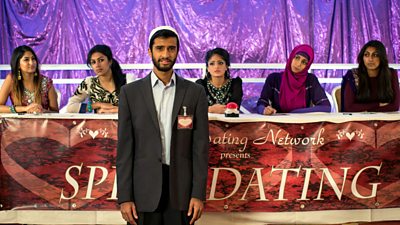Editor's Note: Shakeel Ahmed is the writer of the original drama short for ÃÛÑ¿´«Ã½ iPlayer . This blog post was published to accompany the launch of the pilot episode of My Jihad in 2014.
Here’s a disclaimer; my experience is minimal enough for me to realise that I have no advice to give. Besides, writing is not prescriptive. It is a fluid and dynamic endeavour, and the rules are constantly in flux. The only thing I have to offer is my own personal thought-process.
Let’s present a hypothetical scenario; you have been told by a potential commissioner to pitch a story. You have been told not to worry about budgets and logistics. You have been told to let your imagination run wild. There is no brief.
What will you write?

When I was fortunate enough to last year, I knew without any hesitation that the story I wanted to tell featured two characters having a conversation on a bus.
Words are powerful. Words can maim but also mend. Words can harm but also heal. We reveal an immense amount of ourselves through our speech; the words that we use, and those that we choose not to use; our tones, pitch, rhythms, cadences; even the gaps between our words tell the listener something about us.

To converse is to connect. With society becoming ever more splintered and the Facebook-Twitter generation experiencing life more and more through a virtual prism, there was something incredibly exciting and immensely old-fashioned in writing a story that simply had two people engaging in an earnest face-to-face conversation.
Of course, I couldn’t guarantee that anyone else agreed with me. There was always the possibility that my idea would get laughed away and tossed onto the rubbish heap. But this was the story I wanted to tell. It was the story I HAD to tell. And this may be the greatest lesson I can take away from the process.

Let’s go back to that line at the top of this post; writing is not prescriptive. It may take time and numerous rejections, but a writer will eventually learn that it’s impossible to second-guess the decision-makers. There are too many variables at play. All the writer can do is attempt to write the best script he/she can muster. Write-what-you-know, the experts say. Why? Because that will be the best thing you write; filled with the most sincerity, passion and insight.
, and
